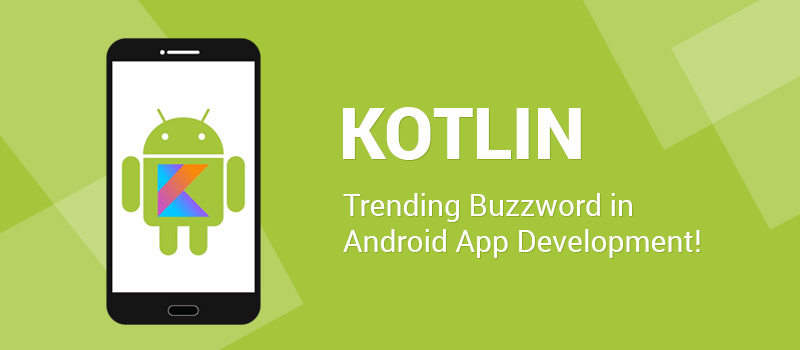Kotlin – The Next Big Thing in the Android App Development Space
Its official now: Google has announced its induction of Kotlin as one of the ‘first-class’ programming languages for Android development, offering complete support to it. The announcement came following a spike in popularity of the language and its adoption by leading names such as Expedia, Flipboard, Square, Pinterest, and others for their production apps. So, what’s Kotlin you ask? Read on:
Kotlin - What Is It?
It is a statistically-typed programming language developed by JetBrains in 2011, is built on the Java Virtual Machine (JVM) and uses the LLVM compiler infrastructure. Its interoperability with existing programming languages allows developers to build upon the existing code and incrementally add Kotlin to it. Expressive, powerful, concise and easy to read and write, Kotlin is touted to be the future of Android development.
What Makes It Special?
Easy To Learn and Develop
Being simpler than the Java equivalent, coding in Kotlin is more human-readable and carries a clean and intuitive syntax, enabling developers to master it fairly quick. It cuts down the time spent on several processes such as debugging and accelerates the Android app development process.
Fully Compatible with Java
One of the biggest advantages offered by this programming language is its interoperability with Java. With minimal to no modifications to the existing Java code, it allows developers to use the extensive features of Kotlin, while also incorporating Java libraries and frameworks into the project.
It’s an Open Source Language
Kotlin is an open source platform under Apache 2, thereby creating a strong open ecosystem with scope for major improvement in the near future. It fosters a healthy developer network that allows developers to explore the limitless potential of this promising new entrant.
Where Is It Headed?
Presently, the platform fully supports IntelliJ IDEA, an IDE built by JetBrains with further plans of expansion to other IDEs. Also, JetBrains is working on making the code run on multiple platforms including Web and iOS, without compiling it down to JVM.
Conclusion
Its simplicity and versatility make it a great addition to the official Android languages, boosting the efficiency of the app development process and providing a host of benefits and features. The platform supports an open developer ecosystem and shows promise of evolving and growing with time. If you’d like to explore the language, or build an app with it, here’s a guide to help you get started.


no responses.